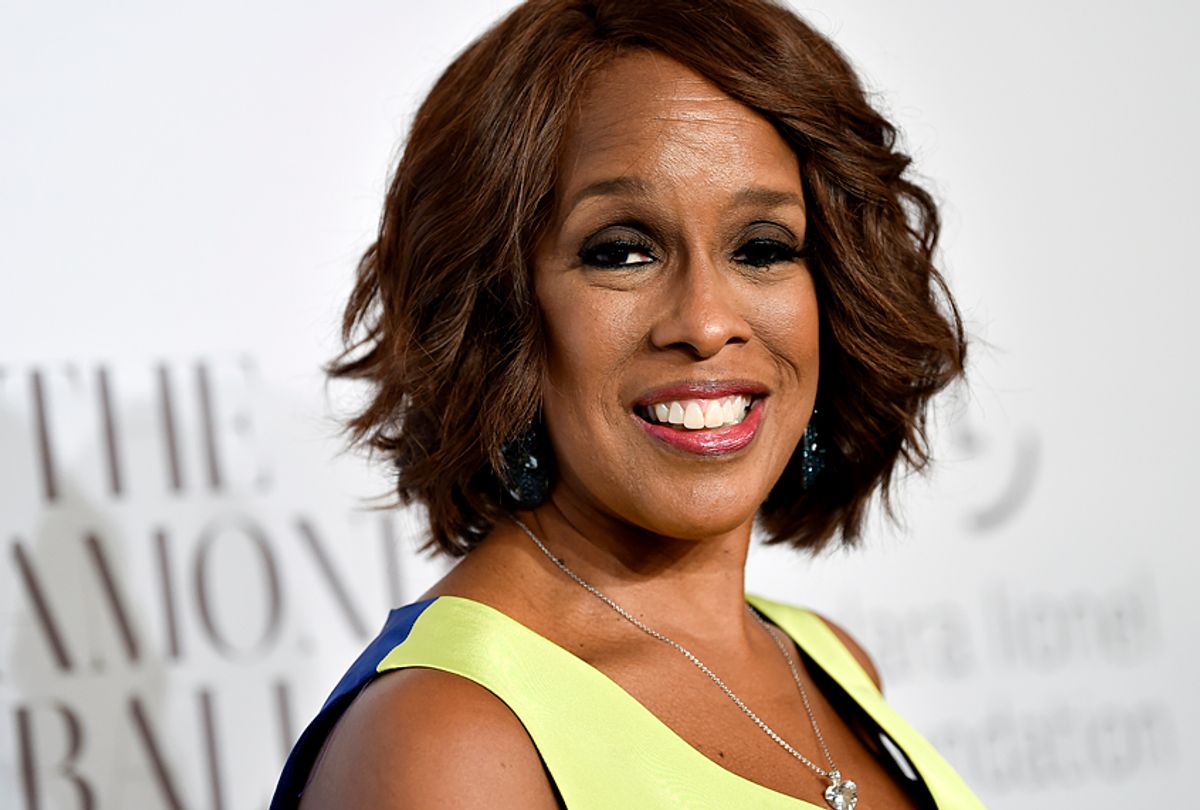"CBS This Morning" co-anchor Gayle King believes the #MeToo movement needs due process, because — as of now, once an accusation is made public — "the man instantly gets the death penalty."
In an interview with reporter Audie Cornish, King spoke about her enduring friendship with her former co-worker Charlie Rose — and cautioned against harsh and sweeping punishments for men who are accused.
King told The New York Times Magazine that she does "worry" about backlash to #MeToo, "because I think when a woman makes an accusation, the man instantly gets the death penalty. There has to be some sort of due process here. All of these inappropriate behaviors are not all the same."
When Cornish questioned if King considered someone being fired to be a harsh punishment, she replied, "In some cases, yes."
Regarding Rose, who was fired from CBS News following multiple allegations of sexual misconduct, King said she still considers her former co-host to be a friend. And, she often spoke of how difficult it was to hear the accusations against him as the scandal was erupting.
"I don’t feel as if I’ve had to reconcile my feelings," she said. "I don’t believe in turning your back on a friend, even when a friend has done something you adamantly disagree with and you’re disappointed in. But I also know that you listen to women, and I don’t discount their stories, either."
John Dickerson ultimately replaced Rose on the CBS morning show, and King said she was supportive of the network's decision.
"There are a lot of men in the world. I think it’s good to have one at the table," she said. "I really advocated bringing in another man. Could Norah and I have done it? Yep, but I’m glad that wasn’t the decision that was made."
The arguments that King made about #MeToo are painfully predictable and have been repurposed so many times (by men, by the media) that it is almost not worth dissecting — almost.
But, the very reason why it is so essential to break down the problematic nature of this line of thinking — and frankly, the dishonesty of it — is because it continues to bring harm to the movement by making it more difficult for victims to raise their hands or for abusers to be held accountable and also stunting the needed conversation about consent from taking place.
Overwhelmingly, the men who have faced career consequences thus far have been outed as pariahs who used their power to abuse or harass multiple women over many years — and termination is not equivalent to the death penalty.
In other cases, when the allegations have been less severe, the point was not that the accused men be banned from society forever but rather that we move past the rudimentary "don't-rape-women" conversation and toward the meaningful dialogue about consent that so many people have long avoided discussing.
But, each time someone in power screams into a bullhorn that #MeToo is a "witch hunt," these necessary conversations get muted. Further, cries for due process and the fear of men being wrongly accused center the conversation around abusers as the larger movement attempts to talk about the oppression of women.
"How manipulated this broader, international conversation on sexual harassment has been in order to so quickly shift the conversation to protecting men from the consequences of their actions before the names of the women they’ve harmed are even known?" Ijeoma Oluo wrote in The Establishment.
Oluo further elaborated:
Today’s headlines seem to be either dominated by the men who’ve been flaunting their abuse of women for years, even decades, with explicit details of all of the horrors they were allowed to inflict upon women — or about the men who might be at risk for being 'unfairly' accused. The men who are now 'scared to even talk to women' lest they be accused of sexual harassment. And the women . . . the women are forgotten completely.
Similar to what happened when Kanye West endorsed right-wing pundit Candace Owens and professed his love for Trump — which was then used by President Donald Trump to make sweeping statements about his support in the black community and, in turn, minimize the harm that his administration facilitates daily — there is a specific danger that erupts when women perpetuate a perspective of a potential witch hunt.
People, organizations and outlets who openly hate women — or are invested in maintaining patriarchy and misogyny — could hold King's words up as proof. "See, #MeToo is bad," they will say — and avoid all accountability for their statements by pointing to King as evidence. And it is already happening.
National Rifle Association spokesperson Dana Loesch tweeted King's specific response about the need for due process — and men essentially receiving the death penalty — with the endorsement "Gayle King drops some serious sense here."
The right-wing publication The Daily Wire published a commentary-free aggregation of King's interview.
The Twitter comments alone on the outlet's post range from agreement to "f**k the #MeToo movement."
Yes, King has a right to have any opinion she wants to about the #MeToo movement. But, the real issue here is the perpetuation of harm.
It is not just that King's claims are inherently false — that due process is absent, that women in less than a year have gained so much power that, with a snap of their finger, men can be obliterated — but how these claims could embolden abusers. Those with little to no understanding of misogyny or power will take King's words and use them to silence other women.

Shares